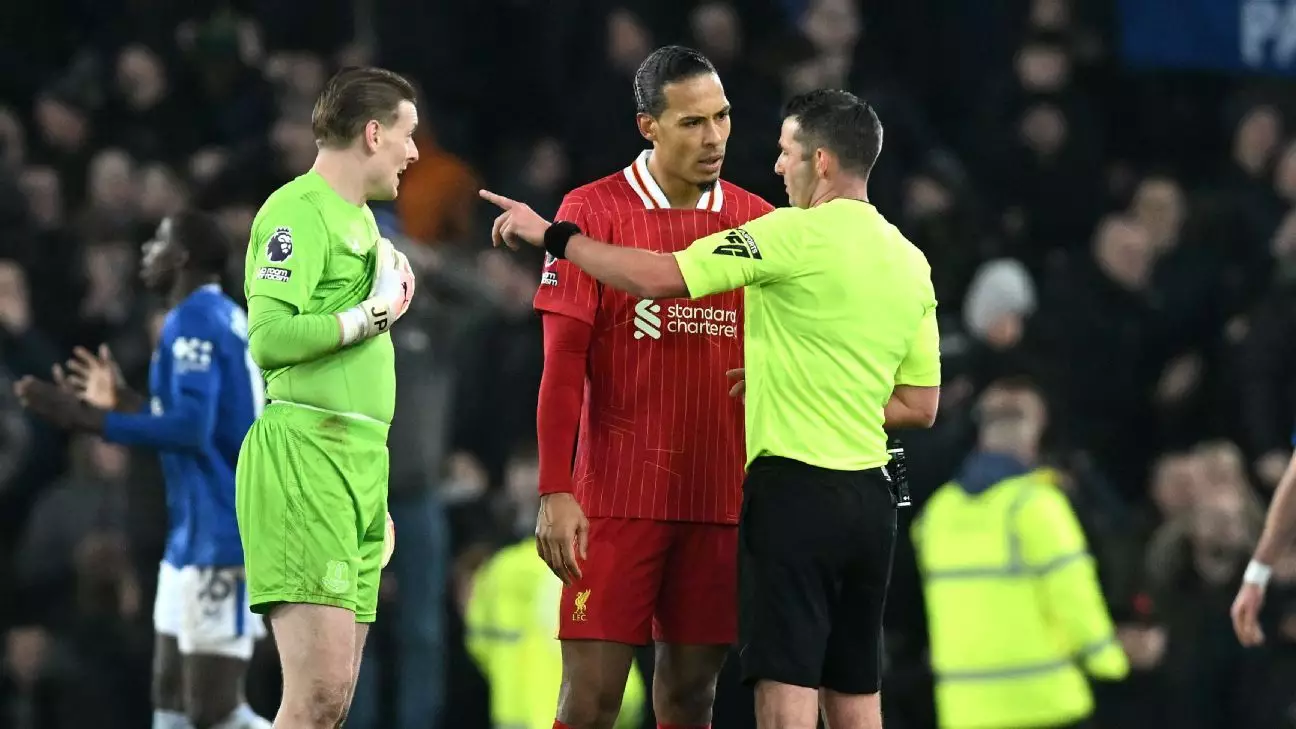The recent Merseyside derby between Liverpool and Everton concluded in dramatic fashion, epitomizing the intense rivalry that exists between these two clubs. The match ended in a tumultuous 2-2 draw, but it was the events that unfolded after the final whistle that garnered significant attention. With four red cards issued post-game, the implications of refereeing decisions and player conduct dominated discussions surrounding the fixture.
Captain Virgil van Dijk highlighted a critical point when he argued that referee Michael Oliver “lost control” during the match, which is particularly significant given the escalating emotions on the pitch. Van Dijk’s assertion reflects not only the chaotic nature of the game but also raises questions regarding officiating standards in high-stakes matches. When key players and coaches feel that they cannot rely on the referee to maintain order, it inevitably affects the flow and spirit of the game.
The dramatic climax came when Everton’s James Tarkowski netted a stunning volley during stoppage time. However, the drama escalated after the final whistle when a confrontation occurred between Abdoulaye Doucouré and Liverpool fans, igniting a chaotic brawl that saw Curtis Jones stepping in to confront Doucouré. The resulting melee involved players from both squads and required intervention from stewards and police, underscoring just how heated the rivalry has become.
Red cards were promptly issued to Doucouré and Jones as well as to Liverpool’s manager Arne Slot and assistant coach Sipke Hulshoff, suggesting that the disciplinary measures taken were not purely reactive but indicative of an atmosphere that had spiraled beyond control.
Post-match, Everton manager David Moyes provided a tempered perspective on the emotional charge of the evening. Without addressing the post-match altercation, he acknowledged the intensity of the atmosphere, noting that such moments are integral to the derby’s legacy. Moyes remarked that while the match might not have been the most celebrated display of football, the emotional stakes turned the encounter into a memorable one, reinforcing the idea that rivalries often transcend the sport itself.
Liverpool’s burgeoning form this season adds another layer of complexity to the rivalry. Moyes recognized that while Liverpool is an exceptional side, his team needed to counteract their strengths. This acknowledgment of the opposing team’s qualities reflects the nature of football; each match is a blend of talent, tactics, and raw emotion.
As both teams reflect on this charged encounter, the focus must shift toward learning and growth rather than lingering resentment. Van Dijk’s call to “move on” reflects a necessary step for athletes to mitigate the emotional aftermath of intense clashes. The obscured lines of sportsmanship, fueled by high stakes and fervent crowds, pose ongoing challenges.
In the end, both teams must evaluate their performance—not just as athletes, but as representatives of their clubs. The Merseyside derby may have unfolded in chaos, but it undeniably showcased the passion, talent, and fervent rivalry that make football a beloved sport worldwide. As the dust settles, anticipation builds for what future encounters hold.

